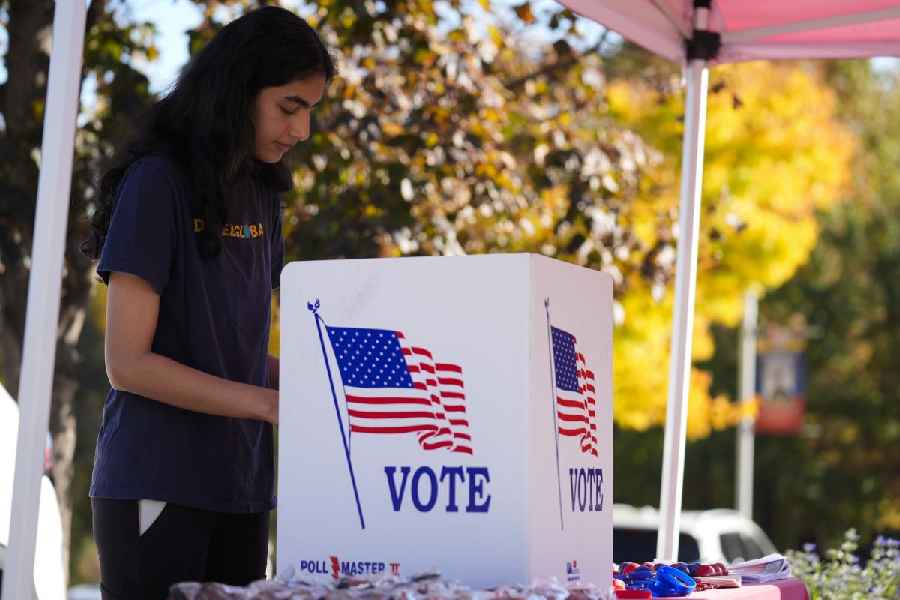Bengalis in New York will today get a chance to do what none in Calcutta has this century: cast their vote in a national election by stamping on a ballot paper printed in Bengali.
More than 200 languages may be spoken in The Big Apple every day, as the department of city planning asserts, but the ballot papers in New York for the November 5 presidential elections will have only four languages apart from English.
Of these, only one will be an Indian language (and Bangladeshi too).
“We are required to service four other languages besides English. It is Chinese, Spanish, Korean and Bengali,” said Michael J. Ryan, executive director, Board of Elections, NYC.
Subhshesh, who works as a sales agent in a store in Times Square, has Bengali roots. He is happy for his father, living in the Queens area, who will be voting on Tuesday.
“People like me know English but there are many in our community who are comfortable in the native language. This helps them at the polling station. I am sure my father will like the idea of seeing a Bengali-language ballot paper,” Subhshesh said.
A ballot paper printed in Bengali — for a state or national election, at least — is something no Bengali aged below the mid-forties has seen in their home state.
Assembly elections in Bengal switched entirely to electronic voting machines in 2001, and the Lok Sabha polls did so in 2004.
New York is believed to be home to about 100,000 Bengalis of Indian or Bangladeshi origin. The inclusion of Bengali on the ballot papers is, however, not just a courtesy but a legal requirement.
New York City is obligated by law to provide voting materials in Bengali at certain poll sites. This mandate extends beyond just ballot papers to include other essential voting materials, ensuring comprehensive language support for Bengali-speaking voters.
“There was a lawsuit about language access and, as you know, the country of India has a lot of different languages within it. The settlement of that lawsuit required, within a certain population density, to have an Asian Indian language,” Ryan said. “Then, through some negotiations, they settled on Bengali. I understand the limitations of Bengali being the choice but it came out of a lawsuit.”
The lawsuit demanding Bengali ballots was filed after the federal government ordered the city to provide language assistance to South Asian minorities under a provision of the 1965 Voting Rights Act.
Other parts of the US may offer ballots in other non-English languages, depending on their demography. For instance, Illinois has been offering Hindi ballots. The first time Bengalis in the Queen’s locality of New York found ballots translated into their mother tongue was in 2013.
While Bengali does not represent the entire gamut of languages spoken in the region, its inclusion is expected to have a significant impact on voter participation.
Avinash Gupta, president of the Federation of Indian Association, says it helps the Indian community. “It will help the Indian population to go out and vote. That is how we can get our voices heard. We are a sizable population. It is heartening to see how Indians go out and vote and even contest elections,” he said.









